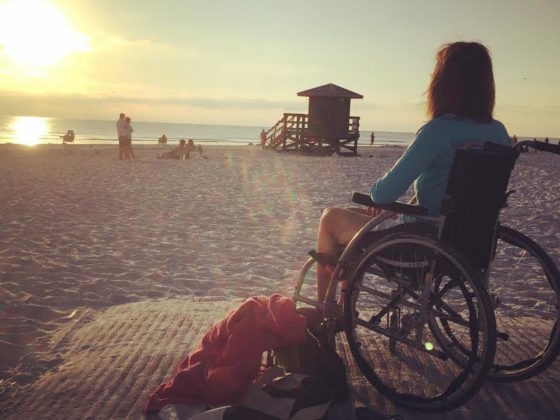You see us at almost every gate at every airport — the people in wheelchairs who board the plane first. Many times (and especially where I live in Florida) these passengers are senior citizens and simply can’t walk long distances. But some of us needing “special assistance” at airports and train stations are travelers who love exploring as much as anyone else. Although traveling for people with disabilities can often be much more challenging than it is for able-bodied tourists, we work hard to overcome these obstacles because of the rewards at our chosen destinations. Here are some things you might not know about travelers with disabilities.


1. We don’t need as much help as you think we do.
Many of us have been doing this disabled and wheelchair thing for a while. Each of us has a special and often very specific way that we need to do physical things, and we’re used to doing them. While offers of help are very kind and always appreciated, don’t be surprised if we politely decline. Sometimes it’s easier — and safer — for us or a caregiver to do things ourselves. And sometimes it just makes us feel happy and more independent.
2. We sometimes have to starve and dehydrate ourselves just to fly on a plane.
No one is ever thrilled about using an airplane bathroom, but many of us physically can’t do it. Some long-haul aircraft have accessible versions, but not all, and the US law that requires them on newer airplanes is being contested by airlines concerned about costs. In order for many of us to take flights longer than a few hours, we have to stop eating and drinking half a day before we depart just to avoiding needing to use the bathroom. We still have a way to go when it comes to accessibility.
3. We take being “inconvenienced” to a whole new level.
When I saw that the bathroom in my supposedly accessible hotel room in Reykjavik was decidedly not — and I had no alternate options — I had to settle for washcloth baths for my week-long stay. On a recent trip to Houston, I had to wait over an hour at the airport in the heat for a wheelchair accessible taxi to arrive. The smallest things like poorly placed faucet handles or too-high beds can make for a miserable trip. And don’t even get me started on airline damage to mobility devices.
4. Having courage means something very different to us.
You may (rightfully) pat yourself on the back for going bungee jumping in Hawaii. I’m scared to try rolling over a sandy or gravelly surface I might get stuck in by myself, or taking a particularly steep curb cut head-on in my scooter. The thought of taking the (accessible) train from Vienna to Munich alone in March terrifies me — but that’s why I’m doing it.
5. We’re better trip planners than most travel agents.
There’s no such thing as “play it by ear” for us. Although we know everything won’t go according to plan, we work very hard to arrange every detail possible on trips and tours to accommodate our sometimes demanding medical needs. As a result, we’ve become experts on accessible accommodations.
6. We’re exhilarated by things you might consider mundane.
I cried the moment I laid eyes on the Sydney Harbour bridge simply because I managed to travel over 10,000 miles by myself to get there. Some wheelchair users experience the happiest days in their lives just to ride in a boat for the first time, or fly on a plane. We can’t access the top of the Eiffel Tower, but just the opportunity to look at it might be enough.
7. We endure the stares in the hopes we may educate.
I expected stares in Dubai. Not so much in Western countries, but as a young woman traveling alone in an electric scooter, I’m an oddity. Individuals with more obvious physical disabilities generate even more (often rude) stares. Sadly, we’re used to this, but it’s important to us that others see us traveling just like anyone else.
8. We will risk looking undignified to experience something great.
I have been carried, lifted, supported, and grasped by more strangers than I can count and in more ways than I can remember. Although many experiences aren’t easily wheelchair accessible, I’m more than happy to be thrown over someone’s shoulder and into the back of a helicopter if that’s what needs to be done to get me on that Alaskan glacier.